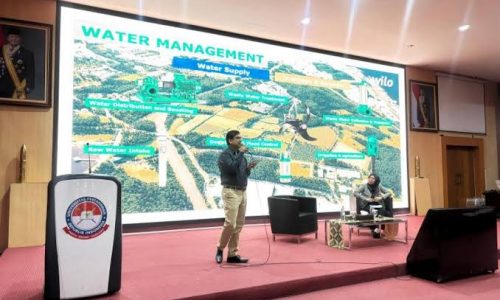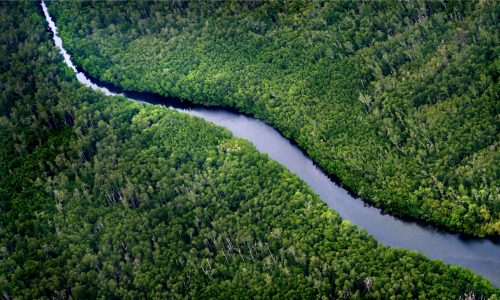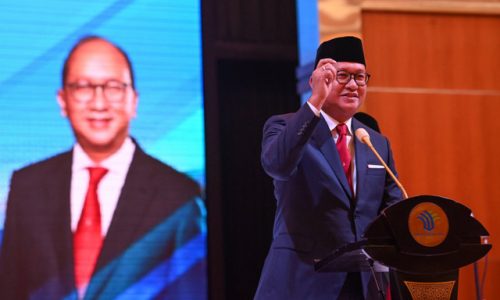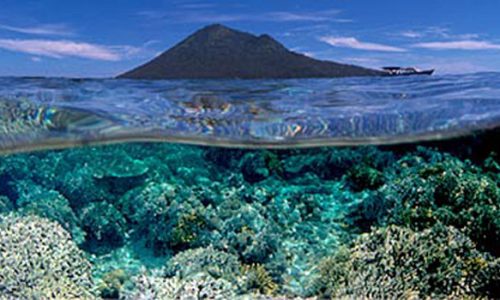Coordinating Minister for Maritime Affairs and Investment Luhut B. Pandjaitan and Sri Lankan President Ranil Wickremesinghe discussed on Sunday, May 19, 2024, the Global Blended Finance Alliance (GBFA), adopted by the G20 Bali Summit leaders to accelerate climate investment in developing countries, Least Developed Countries (LDCs), and island nations.
The GBFA G20 Bali will support countries to design and implement appropriate policies, develop institutional structures, technology and data, as well as financing solutions to transition to achieve the SDGs.
“We are preparing short-term targets to achieve tangible results of the GBFA G20 Bali, namely mobilizing donors from non-government partners, conducting capacity building on blended finance, and preparing case studies on climate, nature, and biodiversity taxonomy, financing for sustainable forest management, and JETP,” Luhut said.
He cited that the GBFA, which will be held at the 10th World Water Forum on 20 May, will see the launch the GBFA secretariat based in Bali’s Sanur SEZ, the signing of a Letter of Intent by the founders, and a roundtable discussion.
“The Letter of Intent will be signed by Indonesia, France, UAE, Sri Lanka, Luxembourg, Kenya, Canada, and the possibility of Fiji and the Democratic Republic of Congo also joining us,” Luhut said.
Climate crisis is an important issue for all countries in the world. As stated by Luhut, referring to the consensus of UAE COP28, each party is committed to make energy transition from fossil fuels to accelerate NDC emission reduction. Luhut sees the challenges of climate change and the need to close the large project climate finance gap, highlighting GBFA’s presence as one of the solutions.
In this case, the GBFA will also support water conservation programs and will bridge the gap between available public resources and the massive investment that the Global Water Fund requires.
“I take the example of the Mangrove Alliance for Climate (MAC). This global initiative was initiated and launched by the United Arab Emirates and Indonesia at COP27 in Egypt in 2022. It has 41 countries as members,” he said.
MAC aims to promote mangroves as a nature-based solution to climate change. All members share the same vision to restore and preserve mangroves as a natural barrier against natural disasters. It is known that the presence of mangroves provides more than four times the carbon credit potential of tropical forests. Mangrove vegetation provides cost-effective ecosystem-based disaster risk reduction capabilities in coastal areas, particularly in areas with poor living standards.
Mangroves are found sporadically in coastal areas of Sri Lanka, including in some dense mangrove forests.
Indonesia is home to about 20 percent of the world’s mangrove forests with 3.6 million hectares that play an important role in strengthening coastal ecosystems. This will be one of the nature-based solutions for climate change adaptation and mitigation.
Indonesia has an ambitious target to rehabilitate 600,000 hectares of mangrove forests in Indonesia. To accelerate this target, rehabilitation activities are implemented in a pentahelix manner that involves collaboration and support from multiple parties ranging from the government, donor partners, private sector, NGOs, philanthropy, to communities at the site level.
“We are collaborating with state-owned enterprises and the private sector through Cooperate Social Responsibility (CSR) programs to rehabilitate mangrove ecosystems and empower surrounding communities to become economically independent. The Government of Indonesia and the Government of the Arabian Union have partnered in the establishment of the International Mangrove Research Center in Indonesia which will be launched today,” Luhut said.
Indonesia has developed a blue carbon project to calculate the potential of carbon storage in soil and roots, which is still a challenge for the whole world.
Meanwhile, the restoration project of West Java’s Citarum River has to deal with some issues, such as uncontrolled domestic and industrial waste, ecosystem damage, floating net cages (KJA), and flooding. The river is often referred to as the most polluted and toxic river in the world.
In 2018, President Joko Widodo initiated the Citarum Harum program to restore the river through a collaborative and integrated approach. The program involves ministries, local governments, academics, businesses, communities and the media working together to tackle pollution and environmental degradation in the watershed.
“Several companies have actively participated through Corporate Social Responsibility (CSR) program. For example, Danone-AQUA has implemented waste collection and recycling programs, educating local communities on proper waste management practices to reduce plastic waste in the river. AstraZeneca supports land rehabilitation and revitalization of the Citarum river by planting 10 million trees involving local communities,” Luhut cited.
Since the launch of the Citarum Harum program, there have been improvements in water quality, reduction in critical land, and increased community participation. The program has also seen the return of several endemic fish species and the use of the river for recreation and healing for the community.









